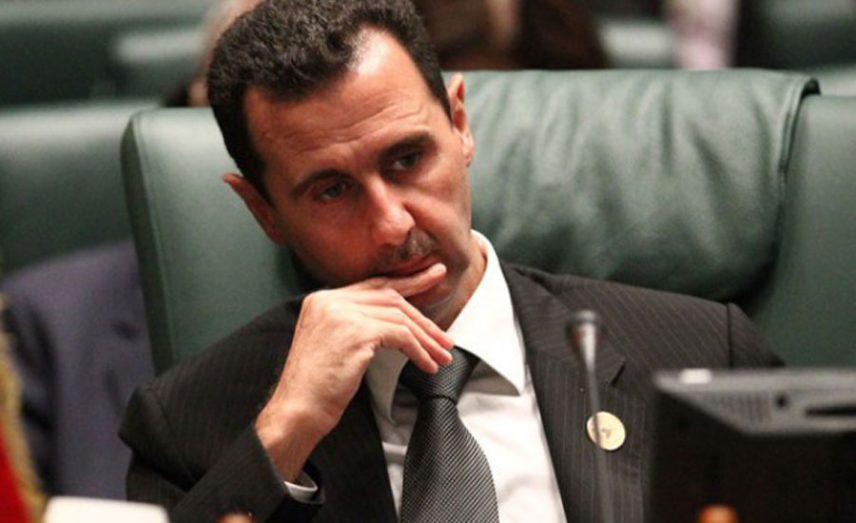Efforts to unify the vision of the political opposition within a single platform continue in preparation for negotiations in Astana and Geneva, as the United Nations envoy Staffan de Mistura announced a delay in technical negotiations to give the opposition an opportunity to reorganize their ranks.
On Monday, the High Negotiations Committee began meetings in the Saudi capital with the attendance of the Cairo and Moscow platforms with the aim of producing a single delegation to the coming Geneva negotiations. However, as expected, the effort failed as a result of the inflexibility of the Moscow delegation led by “opposition” member Qadri Jamil, who refused to discuss the matter of “Assad’s fate” during the transitional phase.
De Mistura had previously announced the delay of technical discussions with the opposition which had been scheduled for August, predicting the Astana talks would be held in September, with political negotiations in Geneva resuming after that.
The U.N. envoy said that the Syrian crisis will see qualitative shifts in the coming months of October and November, and called on the Assad regime to express seriousness in the negotiations.
In a related context, Syrian National Coalition member Hadi al-Bahra said: “De Mistura invited the delegations of the High Negotiations Committee and the Cairo and Moscow platforms to talks in Geneva from the 22nd to the 27th of this month,” adding that, “the purpose of the invitation and the second Riyadh meeting is the possibility of uniting the opposition delegations under a single umbrella and expanding the High Negotiations Committee to give it more dynamism.”
Bahra noted that there were differences in opinion and viewpoint between the High Negotiations Committee delegation and the delegations of the Moscow and Cairo platforms around political issues.
Opposition spectrum agrees to second meeting in Riyadh
De Mistura’s calls for the need to unify viewpoints have pushed the High Negotiations Committee to form a committee to study expansion and appointed George Sabra to head this effort. Sabra has sent messages to both the Moscow and Cairo platforms to join the High Negotiations Committee, making it a condition for those who want to join to “agree to the First Riyadh Conference statement.”
Responding to Sabra’s calls, the Cairo and Moscow platforms agreed to attend the High Negotiations Committee meeting in Riyadh.
Firas al-Khalidi, head of the Cairo platform delegation, said that representatives had arrived at the Saudi capital to hold “consultation meetings” with the Syrian opposition spectrum after resolving the dispute with the High Negotiations Committee over the agenda.
In parallel, political sources said that the Moscow platform, which is close to Russia and headed by Jamil, had also agreed to attend the Riyadh II conference.
Will the opposition give up on the issue of Assad’s departure?
Since the announcement of the High Negotiations Committee’s intention to hold a second conference in Riyadh to bring in the Cairo and Moscow platforms, matters have become more complicated for the Syrian opposition, which has split in different directions. A rift has emerged between those who accept President Bashar al-Assad remaining in the transitional stage and those who insist on his departure beforehand.
Before the announcement of the Riyadh II conference, the Committee’s leaders met with the Saudi Foreign Minister Adel al-Jubeir, during which he confirmed his support for this step, amid unconfirmed leaks indicating that he had informed those at the meeting of the need to accept Assad staying at the beginning of the transitional process.
Syrian opposition member Samir Nashar said that the issue of accepting Assad will be “a real challenge before the forces of the opposition and the revolution, and it is expected that the opposition entities will witness strife and conflict.”
Nashar, secretary of the Damascus declaration, said that “in the High Negotiations Committee there is a hardcore group who will resist any change in the vision of the Riyadh conference, as expressed in its statement, and the High Committee depends on the support of the Syrian revolution community, due to its position of not conceding the demand that Assad step down as well as that he be tried for his crimes against humanity and using internationally banned weapons against the Syrian people.”
Local councils for reconciliation
From another side, and in a new step through which Russia has entrenched its presence in Syria as an occupying force, Moscow proposed that Syrians establish “local councils for reconciliation” in the “de-escalation zones” which should include representatives of the Syrian opposition and Assad regime.
The deputy commander of Russian forces in Syria, Sergei Kurylenko, called on Syrians in a video to form local reconciliation councils in de-escalation zones in cooperation with the Russians.
This article was translated and edited by The Syrian Observer. Responsibility for the information and views set out in this article lies entirely with the author.


